Writing Main

How do I structure my writing effectively ?
Effective writing structure is crucial for conveying your message clearly and engagingly. Here are some tips on how to structure your writing effectively: 1. Understand the purpose of your writing and tailor your structure accordingly. 2. Create a basic outline before you start writing, organizing your thoughts into sections such as introduction, body, and conclusion. 3. Start with an attention-grabbing opening that sets the tone for your piece and state the main idea or thesis statement clearly in the introduction. 4. Divide the body into paragraphs, each presenting a single main point, and use topic sentences to introduce each paragraph's main idea. Provide evidence or examples to support your points and maintain a logical flow between paragraphs. 5. Summarize the main points without repeating them verbatim in the conclusion, draw a conclusion based on the evidence provided, and end with a memorable closing statement or call to action. 6. Break up long sections with headings and subheadings to help readers navigate through your text easily. 7. Maintain consistency in tense, voice, and perspective, and stick to one style guide for formatting and references. 8. Review your work for clarity, coherence, and correctness, making sure each sentence contributes to the overall structure and purpose.

What are the key elements of academic writing ?
Academic writing is a form of writing that follows specific guidelines and conventions to ensure clarity, precision, and objectivity. Key elements of academic writing include a clear and concise title, an abstract summarizing the paper, an introduction setting the stage for the research, a literature review evaluating existing research, a methodology section describing the research design and procedures, a results section presenting the findings, a discussion interpreting the results, a conclusion summarizing the main points, and references listing sources. Appendices may also be included for supplementary materials.

How do I make my writing more engaging and interesting to read ?
Writing is an art form that requires practice, patience, and a willingness to experiment with different techniques. To make your writing more engaging and interesting to read, consider using vivid language, telling stories, using active voice, varying sentence structure, incorporating humor, and showing rather than telling. These strategies can help bring your writing to life and keep readers interested.

How do I develop a unique writing style ?
The text provides a detailed guide on "How to Develop a Unique Writing Style." It outlines five key steps: reading widely, practicing writing regularly, experimenting with different techniques, finding your unique voice, and seeking feedback from others. The author emphasizes that developing a distinctive style takes time and effort but can significantly enhance one's writing impact.

How can I improve my writing skills ?
The text provides a comprehensive guide on how to improve writing skills. It outlines strategies such as reading regularly, practicing writing daily, learning grammar and style guides, getting feedback, revising and editing, studying writing techniques, setting realistic goals, finding one's voice, staying motivated, and keeping the learning process continuous. Each strategy is further elaborated with specific actions or methods that can be adopted. The emphasis is on consistency and openness to learning from both successes and failures in the writing journey.
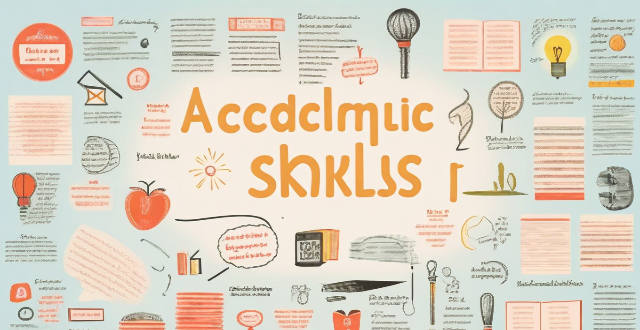
How do I improve my academic writing skills ?
Improving your academic writing skills is crucial for success in higher education. Tips include reading extensively, practicing regularly, seeking feedback, planning and organizing ideas, using appropriate language and tone, following proper formatting guidelines, and editing and proofreading carefully. By following these tips, you can enhance your writing abilities over time.

Can playing sports improve one's writing skills ?
Playing sports can indirectly improve writing skills by enhancing focus, creativity, and reducing stress. It also promotes discipline, teamwork, and resilience, qualities beneficial for writing. Incorporating sports into a routine can inspire more engaged and authentic writing.
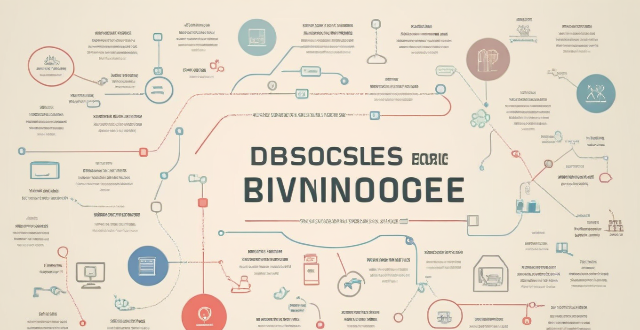
What is the difference between academic and non-academic writing ?
The article discusses the differences between academic and non-academic writing in terms of purpose, audience, style, structure, and language features. Academic writing aims to convey complex ideas and research findings to a specialized audience using formal, objective, and precise language, while non-academic writing focuses on informing, entertaining, or persuading a general audience using informal, subjective, and general language. The structure of academic writing is rigid and includes detailed analysis and extensive citations, whereas non-academic writing has a flexible structure, narrative style, and limited references. Language features also differ, with academic writing using complex sentences, passive voice, and abstract concepts, while non-academic writing prefers simple sentences, active voice, and concrete examples.

What are some effective techniques for improving my writing ?
Improving your writing skills involves a combination of reading, practicing, and receiving feedback. Regular reading helps in understanding different styles and techniques, while daily writing exercises such as journaling or crafting short stories enhance clarity and coherence. Grammar and vocabulary practice through exercises and learning new words are crucial. Seeking peer and professional feedback allows for constructive criticism. Revision is key, with multiple drafts and editing tools aiding in refining work. Studying writing techniques through courses and books deepens understanding. Setting writing goals, experimenting with different styles, and using writing prompts foster creativity and structured practice. Lastly, maintaining a healthy lifestyle supports mental clarity and creativity. Consistent effort and patience lead to significant improvements in writing skills over time.

What are some common mistakes to avoid in academic writing ?
Avoid common mistakes in academic writing, such asAvoid common mistakes in academic writing, such as, lack of clarity and precision overuse of passive voice, inappropriate word choice, failure to proofread, and ignoring feedback. These pitfalls can make your writing less effective and professional. By avoiding them, you can improve the quality of your academic writing and better convey your research and ideas to your audience.

What are some tips for editing and revising my writing ?
Editing and revising are crucial steps in the writing process that can significantly improve the quality of your work. Here are some tips to help you edit and revise your writing effectively: 1. Take a break from your writing to get a fresh perspective. 2. Read your writing out loud to catch awkward phrasing, grammatical mistakes, and typos. 3. Check for clarity and coherence within and between paragraphs. 4. Pay attention to sentence structure and vary sentence length to create rhythm and interest. 5. Use active voice instead of passive voice whenever possible. 6. Eliminate redundant words or phrases and be concise without sacrificing clarity or meaning. 7. Vary vocabulary by using synonyms to avoid repeating the same words. 8. Use spell-check and grammar-check tools, but also read through your work carefully to catch any errors they might miss. 9. Get feedback from someone else to spot issues you haven't noticed and offer valuable suggestions for improvement. 10. Revise your work multiple times to refine it further and make it stronger overall.

How can I improve my grammar and punctuation in writing ?
Improving grammar and punctuation skills is essential for becoming a proficient writer. Here are some tips: 1. Read widely to expose yourself to different styles of writing, grammar rules, and punctuation usage. 2. Practice active reading by analyzing sentence structure, vocabulary, grammar rules, and punctuation. 3. Write regularly to become better at using proper grammar and punctuation. 4. Get feedback from others to receive constructive criticism on your grammar and punctuation. 5. Use online tools and resources like grammar checkers, online courses, and grammar books to improve your skills. 6. Study grammar rules and punctuation guidelines focusing on parts of speech, sentence structure, and correct uses of punctuation marks. 7. Edit and revise your work thoroughly to ensure clarity, consistency, correctness, and completeness. Remember that mastering these aspects of writing takes practice and patience, so keep improving!

How do athletes use their experiences in sports to inspire their writing ?
Athletes often draw from their experiences in sports to inspire their writing. Here are some ways in which they do so: 1. Overcoming Adversity: Athletes face numerous challenges and setbacks throughout their careers, such as injuries, losses, and pressure to perform. These experiences can serve as powerful sources of inspiration for their writing. They can share stories of how they overcame these obstacles and the lessons they learned along the way. 2. Teamwork and Collaboration: Sports often require teamwork and collaboration, which can translate into valuable insights for writing about relationships, communication, and leadership. Athletes can write about the importance of working together towards a common goal, trusting one another, and supporting each other through difficult times. 3. Discipline and Perseverance: The discipline required to excel in sports can be applied to other areas of life, including writing. Athletes can write about the value of perseverance, dedication, and hard work, and how these qualities have helped them achieve success both on and off the field. 4. Mental Toughness: Sports often test an athlete's mental toughness, requiring them to stay focused, motivated, and resilient in the face of adversity. These experiences can provide valuable insights for writing about resilience, determination, and overcoming self-doubt. 5. The Pursuit of Excellence: Athletes strive for excellence in their chosen sport, constantly pushing themselves to improve and reach new heights. This pursuit of excellence can inspire writers to strive for greatness in their craft, always seeking to refine their skills and create something truly exceptional. 6. Embracing Failure: In sports, failure is inevitable. Athletes learn to embrace failure as an opportunity to learn and grow, rather than a reason to give up. This mindset can be incredibly valuable for writers who may face rejection, criticism, or creative blocks. By embracing failure as a necessary part of the process, athletes can inspire writers to keep pushing forward despite setbacks. 7. Finding Inspiration in Routine: Athletes often have rigorous training routines that require them to push themselves physically and mentally every day. This disciplined approach to daily practice can inspire writers to establish their own routines and rituals that help them stay focused, productive, and creative. 8. The Power of Mindset: The mindset required to succeed in sports can also be applied to writing. Athletes must believe in their ability to achieve their goals, even when faced with seemingly insurmountable challenges. This positive mindset can inspire writers to believe in their own abilities and persevere through difficult times. 9. Celebrating Triumphs: Finally, athletes often celebrate their triumphs and accomplishments, no matter how small they may seem at the time. These moments of joy and pride can serve as powerful reminders for writers that every step forward is worth celebrating, and that progress comes from consistent effort and dedication over time.

How might AI influence creative industries like music, art, and writing ?
AI is transforming creative industries, enhancing and augmenting the creative process. It influences music production, art generation, and writing by offering tools for composition, sound design, mixing, generative art, content generation, and real-time translation. AI also assists in music recommendation, art analysis, and proofreading. Despite its potential, AI should complement human creativity, as art's essence lies in unique perspectives and emotions that only humans can provide.
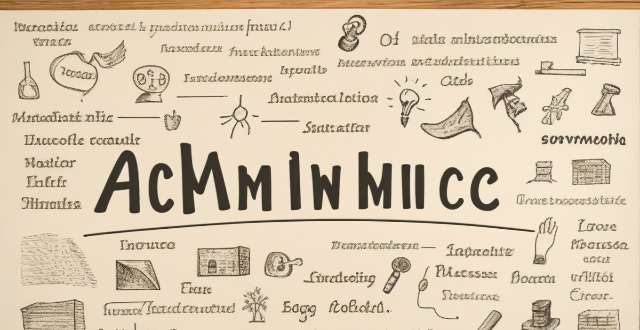
What are some tips for effective academic writing ?
Effective academic writing is essential for success in higher education. To improve your skills, understand the assignment, plan your work, conduct research, write clearly and concisely, use evidence to support arguments, edit and revise your work, follow academic integrity guidelines, use visual aids when applicable, stay focused on the main point, and seek feedback from others.

How do I write a strong thesis statement for an academic paper ?
A thesis statement is crucial for any academic paper, serving as a concise summary of the main point or claim. To write a strong thesis statement, first identify the purpose of your paper (persuasive, informative, analytical, or explanatory) and conduct preliminary research to understand key issues. Brainstorm main points and draft your thesis, revising it until it accurately reflects your argument. Ensure it's debatable and supportable by evidence. Examples include persuasive, informative, analytical, and explanatory thesis statements.

How do I cite sources in academic writing ?
The text discusses the importance of citing sources in academic writing and provides guidelines on how to do so. It emphasizes the need to choose a citation style that aligns with the requirements of the discipline or institution, use in-text citations appropriately, create a reference list or bibliography, potentially use footnotes or endnotes, and maintain consistency throughout the paper. The text also includes an example of citing sources in APA style.
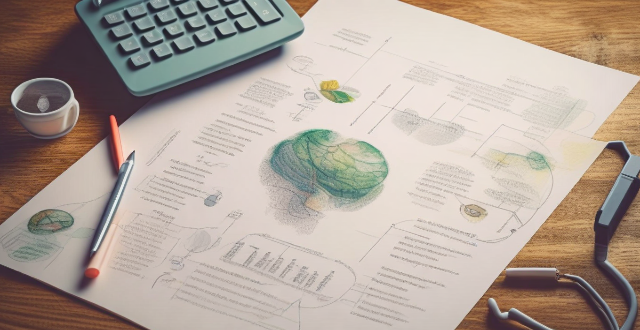
What ethical considerations should be taken into account when writing product reviews ?
Ethical considerations are crucial when writing product reviews to ensure trustworthiness and credibility. Reviewers should be honest, transparent, fair, and impartial, respect intellectual property, and be responsible towards readers. They must disclose any personal or financial interests, provide accurate information, avoid biased opinions, and refrain from making personal attacks. Comparative analysis should be fair, and language neutral. Original content is essential, with proper credit given where due, and copyright compliance maintained. Trade secrets should not be revealed, and trademarks or patents should not be infringed upon. The review's purpose should be clear, useful information provided, potential issues warned about, old reviews updated, and feedback engaged with. By considering these aspects, reviewers can contribute positively to the online community and build trust with their audience.

What are some common mistakes that writers make, and how can I avoid them ?
Common writing mistakes include grammar and punctuation errors, overuse of passive voice, redundancy, lack of clarity, and inconsistency in tone. To avoid these, proofread, learn grammar rules, use active voice, cut unnecessary words, outline ideas, and maintain consistent tone and style.
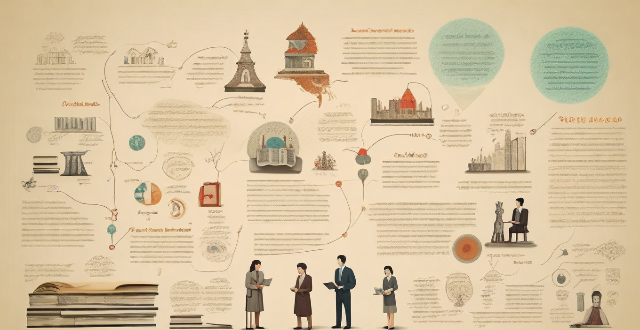
What are some effective study techniques for learning history ?
Effective study techniques for learning history include understanding chronological order, using visual aids, active reading, group study, practice writing, connecting historical events with the present, using multimedia resources, and visiting museums and historical sites. These methods can help deepen understanding and make the subject more engaging and rewarding.

What are the best methods for taking notes in class ?
The text provides a comprehensive overview of four effective methods for taking notes in class, namely the Cornell Method, Outlining Method, Mind Mapping Method, and Sentence Method. The Cornell Method involves dividing your paper into three sections to organize your notes, while the Outlining Method uses headings and subheadings to create a hierarchical structure. The Mind Mapping Method is a visual technique that involves creating a diagram of connected ideas, and the Sentence Method involves taking notes in complete sentences to better understand and retain information. Each method has its own unique steps and benefits, making it important for students to choose the one that works best for them.
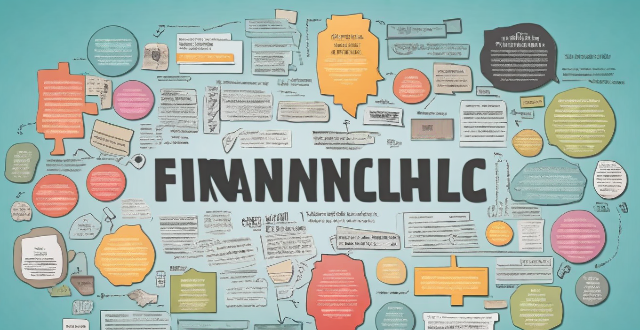
What are the main objectives of financial regulation ?
The main objectives of financial regulation are to promote stability, efficiency, and protect consumer interests in the financial sector. This involves preventing systemic risks, protecting depositors and investors, ensuring market integrity, encouraging competition, improving access to finance, facilitating innovation, ensuring fair treatment, providing education, and handling complaints. By achieving these goals, financial regulators help maintain a healthy and vibrant economy while safeguarding the interests of all stakeholders involved.

What are the main sources of sustainable energy ?
The text discusses the various main sources of sustainable energy, including solar energy, wind energy, hydropower, geothermal energy, bioenergy, tidal and wave energy, and hydrogen energy. It also highlights the importance of adopting sustainable energy for environmental impact, economic benefits, energy security, and health considerations. The transition to sustainable energy requires investment, policy support, and technological innovation.

What are the main arguments of climate skeptics ?
This text discusses the main arguments presented by climate skeptics, who challenge the scientific consensus on human-caused global warming. Their arguments include natural variability, lack of consensus among scientists, unreliable computer models, economic concerns, policy misuse, CO2 benefits, absence of catastrophes, historical warming, stable temperature claims, and personal freedoms. Despite these arguments, most climate scientists disagree with these views due to extensive supporting evidence.

What are the main causes of climate disasters ?
The main causes of climate disasters are greenhouse gas emissions from burning fossil fuels, deforestation and land use changes, industrial processes and waste management, agricultural practices, and natural factors such as volcanic eruptions, solar radiation, and ocean currents. Human activities are the primary drivers of climate change, leading to more frequent and severe weather events like hurricanes, droughts, and floods. To mitigate these impacts, reducing greenhouse gas emissions through sustainable practices is essential, along with understanding and adapting to natural factors.

What are the main contributors to a carbon footprint ?
A carbon footprint is the total amount of greenhouse gases (primarily carbon dioxide) that are emitted as a result of an individual's, organization's, or product's activities. The main contributors to a carbon footprint can be broadly categorized into three sectors: household consumption, transportation, and production of goods and services. In summary, understanding these main contributors to a carbon footprint allows individuals and organizations to make more informed decisions about their consumption habits and operational practices to reduce their environmental impact.
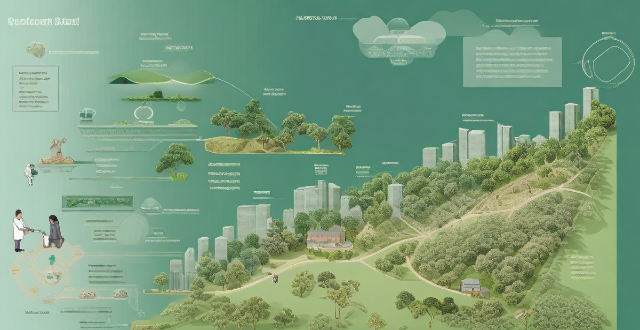
What are the main causes of climate change ?
The main causes of climate change include both natural factors and human activities. Natural causes such as solar variability, volcanic eruptions, and orbital changes have influenced Earth's climate in the past but are not responsible for current global warming trends. Human activities, including greenhouse gas emissions from burning fossil fuels, deforestation, industrial processes, agricultural practices, and urbanization with increased transportation needs, are the primary drivers of recent global warming. Addressing these human-induced factors is essential to mitigate further climate change impacts.

What are the main causes of climate variability ?
This article discusses the main causes of climate variability, which include natural factors such as solar radiation, volcanic eruptions, and oceanic circulation, as well as human-induced factors like greenhouse gas emissions, land use changes, and aerosol emissions. Understanding these causes is essential for developing strategies to mitigate the negative impacts of climate variability on our environment and society.